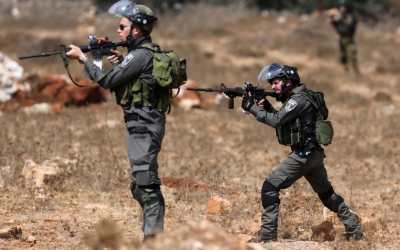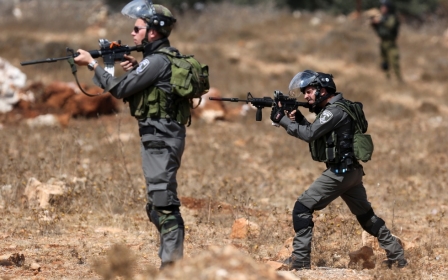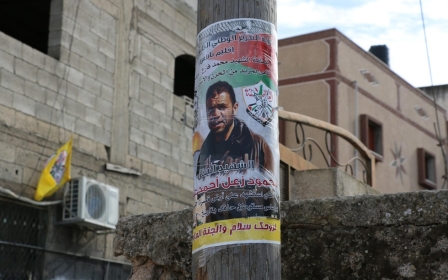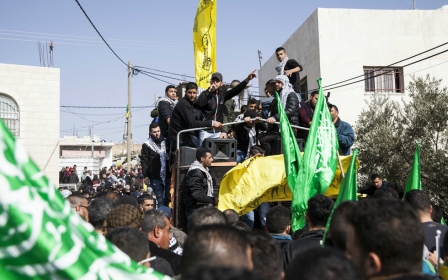Ayman's last picnic: Palestinian teen's death shatters West Bank haven

Flipping through the pages of her eldest son’s schoolbooks, Inas Hamed stops to read the notes he scribbled in the margins, encouraging himself to finish his final year of high school.
A moment later, the 35-year-old mother of six reaches for his closet, rummaging through her son's clothes and other belongings to inhale his lingering scent.
"I still cannot believe it. My son had just been with me," Inas told Middle East Eye.
'He was fine. He was telling me about his dreams to finish university and he was playing with his brothers and joking with his father'
- Ayman's mother
On 25 January, Ayman was shot and killed by the Israeli army one kilometre from his home in the village of Silwad, east of Ramallah, in the occupied West Bank.
That was the last day the 17-year-old spent with his family, his mother said.
New MEE newsletter: Jerusalem Dispatch
Sign up to get the latest insights and analysis on Israel-Palestine, alongside Turkey Unpacked and other MEE newsletters
It was a Friday, and Ayman, his parents and his siblings decided to take advantage of sunny skies to have a picnic in one of the village's lush areas, known as Mashariya.
Inas said she prepared Ayman's favourite lunch for the occasion.
"We had lunch together and Ayman brought chocolate with him, which he shared with his siblings. We went home after two hours, but Ayman decided to return to Mashariya with his friends to hang out," she said.
Blooming with olive, almond and cypress trees, Mashariya is one of the natural extensions of Silwad and is a popular destination for families of the village.
But the area’s proximity to Highway 60, which runs north-south through the West Bank, has turned it into dangerous territory, particularly due to the continuous presence of Israeli soldiers and settlers there.
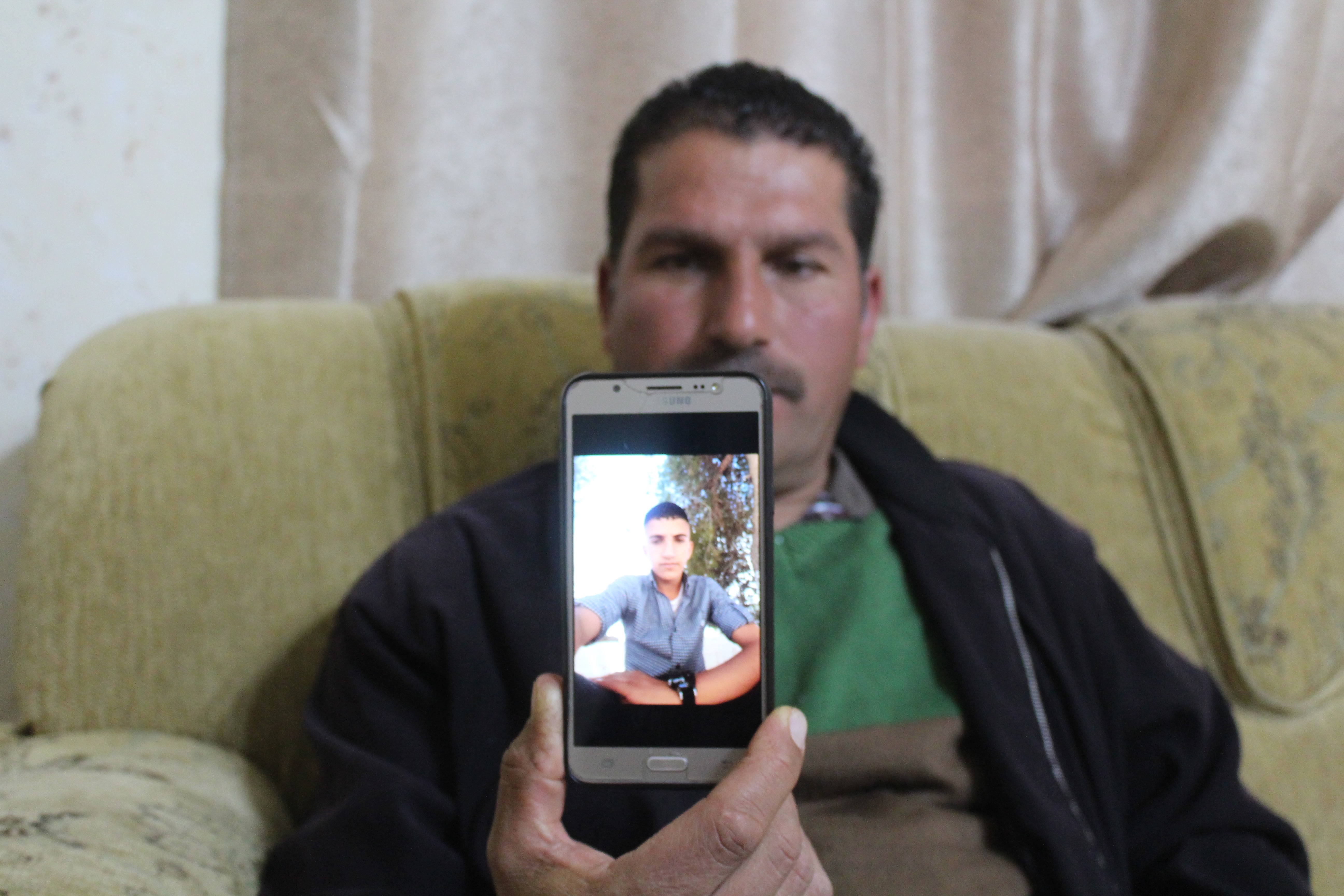
On that calm Friday, after only a few hours in the area, the group of boys was approached by at least three Israeli soldiers. The soldiers fired live ammunition and Ayman was shot in the chest and fell to the ground. One of his friends was shot in the arm, while the others fled.
Less than 15 minutes later, the Israeli army said Ayman was dead, accusing him of throwing stones towards Highway 60.
A shock
Between 2014 and 2016, Palestinians say they witnessed an escalation in confrontations between residents of Silwad and the Israeli army, with clashes often taking place at the entrance to the town.
During this time, Inas said she tightened her control over Ayman, preventing him from leaving the house when confrontations would break out, usually on Fridays.
"I would sit with Ayman at home to make sure he would not leave the house. I was afraid that they would detain him like they arrest other children in the villages," she said.
Inas said she would even check her son's Facebook posts, fearing that he would write something that Israel would consider to be “incitement” - and that could get him arrested. But it was normal for Ayman to go to Mashariya with his friends.
I never expected that he would be killed. There is no reason for them to kill my son and to deprive me of him
- Inas, Ayman Hamed's mother
"I never expected that he would be killed," Inas said. "There is no reason for them to kill my son and to deprive me of him."
Inas described her son as social, saying he loved to help those around him. She recalled how he once borrowed money from her to help a friend whose family was in a difficult financial situation.
"Ayman was not a desperate teen. He took his studies very seriously and wanted to succeed, he said he wanted to be someone important one day," his mother said, adding that he had a cheerful disposition.
His father, Ahmad Othman Hamed, said Ayman took after-school classes and achieved an 85-percent average in his first semester this year. His son planned to attend the prestigious Birzeit University near Ramallah, he said.
Ayman also loved to ride motorcycles and Ahmad said he promised to buy him one once he graduated from high school this summer.
"I was looking at him through the rear-view mirror when we went out for the picnic. I never expected that that would be the last time Ayman would come out with us. I never expected to lose my firstborn like that - and that quickly," his father said.
Ahmad said the doctors who examined Ayman's body said he was shot in the chest from a distance of about 200 metres. The doctors said the bullet "pierced his arteries and lacerated his liver before exiting his body, leading to severe internal bleeding," Ahmad said.
The Israeli army justified the killing of Ayman, claiming he was in an area near Highway 60. But Ayman’s father says his son was with his friends on land that belongs to the family in Mashariya.
Other incidents in the area
This isn't the first time a Palestinian youth has been shot in Mashariya.
On 23 July 2013, Ahmad helped take a 14-year-old Palestinian boy, Jihad Hammad, to a hospital after he was shot twice by Israeli soldiers.
Hammad, who is now 20 years old, said he and his friends were herding sheep in the area when three Israeli soldiers approached them.
“We were afraid so we ran," Hammad told Middle East Eye.
"The soldiers then began firing live bullets from a distance of no more than 25, 30 metres. I was shot with a bullet in my neck and another in my hand. Both bullets entered and exited my body and I suffered a severe haemorrhage.
"My friends helped to get me out of the area and after a little while, Ahmad [Ayman's father] came and transferred me to the emergency centre in Silwad, then to a hospital in Ramallah," he continued.
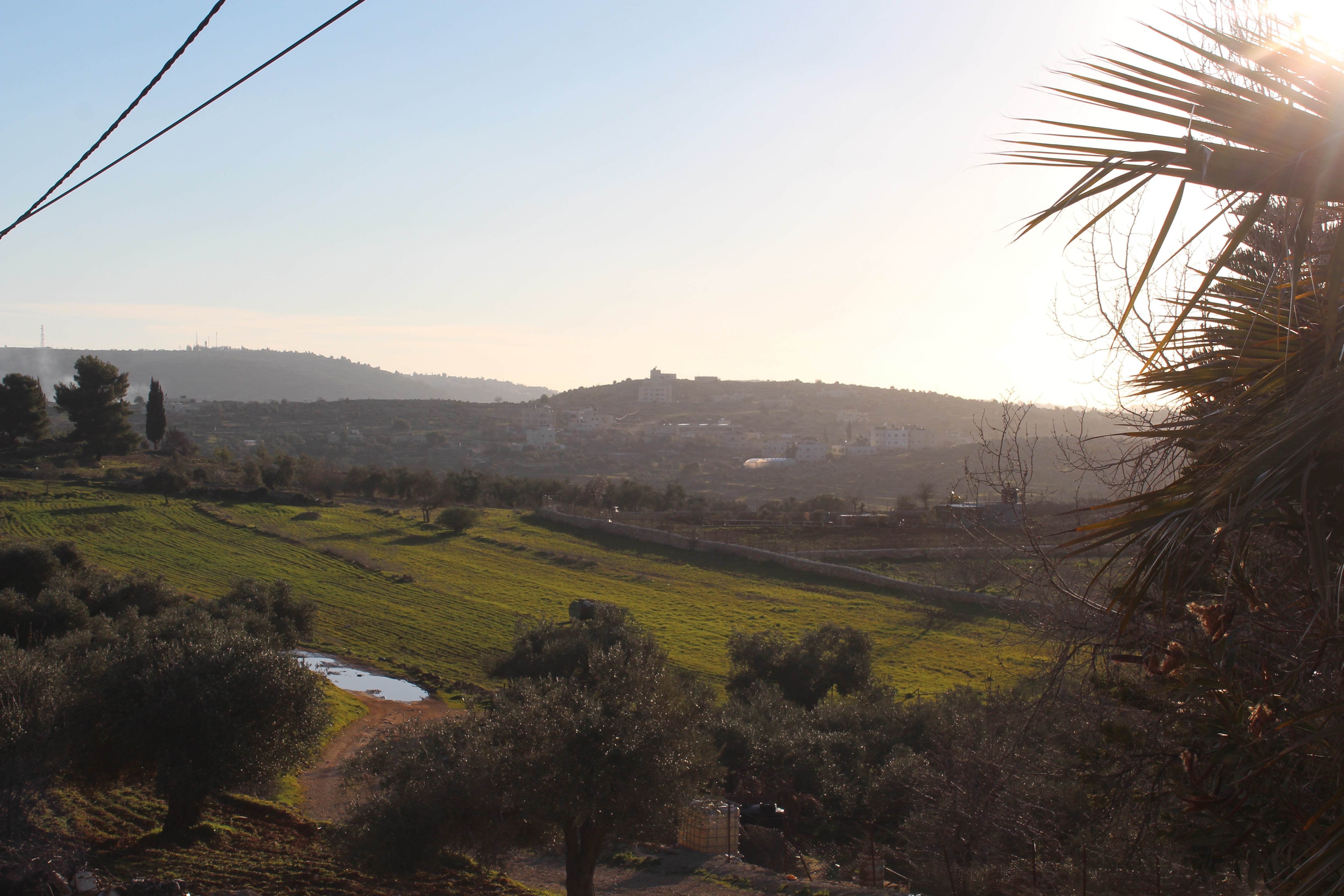
In the aftermath of the shooting, Hammad lost about 80 percent of his ability to speak because one of the bullets struck his pharynx and burned his vocal tendons. He also couldn't move one hand for several months before undergoing a number of surgeries and doing physical therapy.
Hammad said he continues to suffer from his wounds - he still feels pain in his hand - but most of his speech has returned.
The psychological trauma of the shooting persists, however. He said he faints when he sees blood and refuses to go to the area where he was shot, fearful that the painful memories will come rushing back.
Israeli settler violence
Israeli soldiers are not the only danger for Palestinians in Mashariya, as settlers have also descended upon the nature area and attacked Palestinian youth.
In addition to Highway 60 adjacent to Mashariya, the settlement of Ofra lies just south of Silwad on confiscated village lands, while an army base sits to the east.
On 17 June 2017, Ibrahim Othman was shot at by settlers in Mashariya, who claimed the 20-year-old had been throwing stones.
His mother, Alia Hamed, said her son was shot in the back by the settlers and then detained by Israeli soldiers, who later took him to Hadassah Medical Center in Jerusalem.
"We were forbidden from visiting him or taking care of him. It was a very difficult time. I was on the verge of going crazy out of fear of losing him. The day after, our lawyer was able to visit him," Alia told MEE.
After being detained for six days, Ibrahim was tried at Israel's notorious Ofer military court and subsequently released off the side of the road near Qalandiya military checkpoint, which cuts Ramallah off from Jerusalem.
His mother said Ibrahim managed to call his family to pick him up and take him to a hospital to deal with his serious health condition. He underwent surgery two weeks later.
Twenty days after the shooting, however, Israeli soldiers raided the family’s home and arrested Ibrahim once again. During the raid, soldiers also subjected his father to a severe beating.
“Despite Ibrahim's injury, they forced him to walk to an Israeli military post, some two kilometres from the house. He was then taken to the Russian Compound detention centre [in Jerusalem], where he endured intensive interrogation for 35 days," said Alia.
Ibrahim remains in detention in Israeli prisons. While he has not been convicted, he has been accused of throwing stones near Highway 60, based on the testimony of the settler who fired at him, and faces a prison sentence of up to seven years.
That settler has not faced any accountability for shooting her son, Alia said, despite an Israeli army report revealing that the settler did not have a licence to carry a weapon.
While the green slopes of Mashariya have long been a refuge for Silwad residents to momentarily escape the hardships of life, Ayman's death stands as the latest reminder of the absence of safe spaces for Palestinians under the occupation.
Middle East Eye delivers independent and unrivalled coverage and analysis of the Middle East, North Africa and beyond. To learn more about republishing this content and the associated fees, please fill out this form. More about MEE can be found here.


